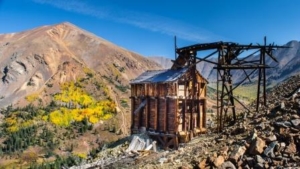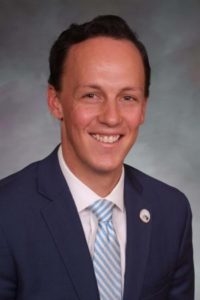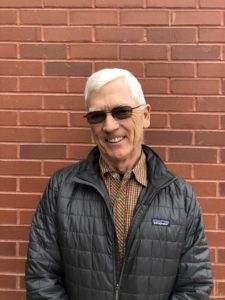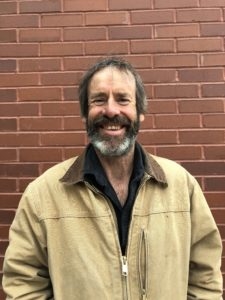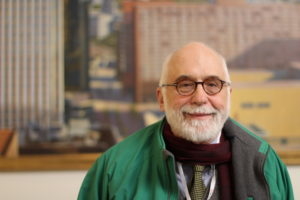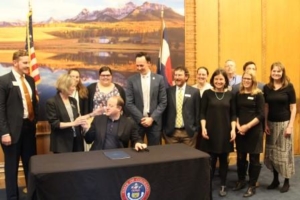DENVER — Today, Governor Jared Polis signed SB 19-181, Protect Public Welfare Oil and Gas Operations. The new law will protect public health and safety when it comes to oil and gas development.
Conservation groups responded to the bill’s passage with the following statements:
“Today marks a new chapter in Colorado’s history. For the first time ever, our state is on track to put the health and safety of workers and residents, and our environment ahead of oil and gas industry profits. This policy is nearly a decade in the making, and we applaud our elected leaders who fought for so long to make it a reality.” — Kelly Nordini, Executive Director, Conservation Colorado
“Coloradans now finally have a voice when it comes to oil and gas development in our state. We thank Governor Polis, Senator Steve Fenberg, Speaker KC Becker and our leaders in the Colorado legislature for listening to the urgent calls from Coloradans who are ready for change. The policy changes in Senate Bill 181 will help to make our communities healthier and safer.” — Jim Alexee, Director, Colorado Sierra Club
“SB 19-181 is a victory for the people of Colorado. By signing this bill, Gov. Jared Polis will expand Colorado’s leadership on methane and curb emissions of this dangerous greenhouse gas, while also helping prevent catastrophic well explosions that threaten our communities. As the Trump administration continues its assault on federal methane protections, it is more important than ever that Colorado respond by boldly cutting methane and fighting climate change.” — Matthew Garrington, State Campaigns Manager, Energy Program, Environmental Defense Fund
“There has never been any Colorado legislation as comprehensive and impactful as SB 19-181. The people beset by the callous onslaught of oil and gas development now have a state government that is prioritizing their interests over the industry’s. This is long overdue and much appreciated.” — Josh Joswick, Issues Analyst/Community Organizer, Oil and Gas Accountability Project
“We thank Governor Polis and the Legislature for modernizing our laws to allow the experts in our state and local governments to make decisions that protect public health and the environment from the dangerous impacts of oil and gas development.” — Joel Minor, Attorney, Earthjustice
“This oil & gas bill signals that Governor Polis and the legislature are putting public health over polluter interests in the state.” — Sam Gilchrist, Western Campaigns Director, NRDC
“Finally, after all these years we have a bill that will protect health and safety in the gas lands. Residents of Garfield County thank Governor Polis for making this long-awaited bill law. However, we must ensure the intent of the law is upheld through the rule-making process.” — Leslie Robinson, Member, Grand Valley Citizens Alliance
“Members of Battlement Concerned Citizens (BCC) and residents of Battlement Mesa are pleased to see the adoption of SB 19-181 and the prioritizing of public health and safety over corporate profits. We appreciate the hard work and determination of the Colorado legislators and Governor Polist that made this possible. We are looking forward to a new era of cooperation with the oil and gas industry to develop our valuable natural resources in a way that prioritizes public health and safety.” — Dave Devanney, Member, Battlement Concerned Citizens
Industry groups spent heavily on misleading advertising against SB 19-181. Analysis conducted by Westword’s Chase Woodruff as the bill moved from the Senate to the House showed that “the fossil-fuel industry [outspent] proponents of SB 181 by more than a 15-to-1 margin.” That spending included included TV advertising that was labeled “misleading” by the Colorado Sun and, at various points, “full of overstatements” and not “not accurate at all” by 9 News’ Kyle Clark.
SB 19-181 will:
- Refocus the mission of the Colorado Oil and Gas Conservation Commission (COGCC) to prioritize health, safety and the environment over industry profits;
- Empower local governments to have a stronger say by clarifying basic powers such as zoning and noise limitations and allowing local oversight and enforcement of operations;
- Direct air quality experts to consider rules to greatly reduce harmful emissions including methane, a dense greenhouse gas;
- Better protects property owners from forced pooling;
- Combat the growing problem of orphaned wells by setting forth a rule making around financial assurances and bonding requirements for oil and gas permits; and,
- Create a professional, paid commission that can better address the litany of permits, rulemaking and oversight the commission must handle.

